
Toyota Excels in US Retail New Vehicle Industry
Among the three-volume leaders in the mainstream part of the new
vehicle industry – Chevrolet, Ford, and Toyota, the Japanese brand
is pulling away from the other two, based on S&P Global
Mobility new vehicle retail* registration data.
Toyota has been the retail market share leader every year since
2012 (see table below), and if its September 2022 CYTD retail share
of 14% holds through December, Toyota would lead for the 11th
consecutive year. Its 14% share also would be a record for the
brand – and the first time any brand has reached that level in the
past decade. Furthermore, Toyota’s 4.1 percentage point lead so far
this year over runner-up Ford is the second highest margin this
decade, surpassed only by the 4.4 percentage point gap last
year.
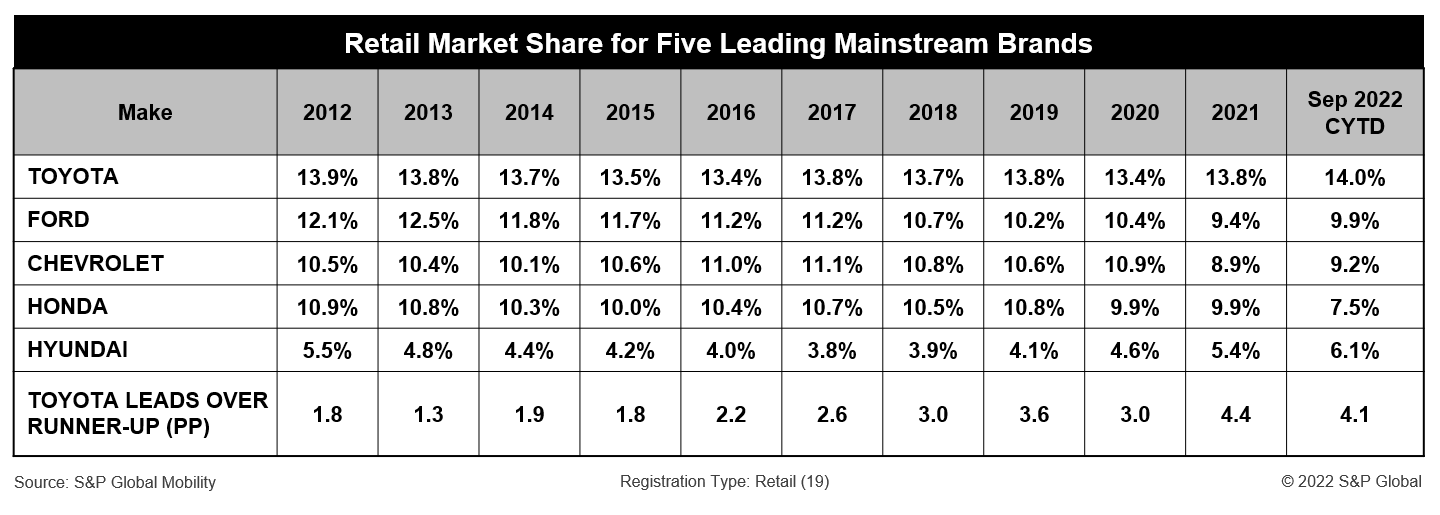
Four Toyota models (RAV4, Camry, Tacoma, and Highlander)
currently rank among the top 10 (of almost 400 nameplates on the
market) based on September 2022 CYTD new retail registrations,
including the #1 overall model (RAV4), #1 car (Camry), and #1
crossover (RAV4). No other brand has more than one model among the
top 10 this year.
Regarding brand loyalty, Toyota consistently ranks either second
(seven times in past decade) or third (four times) in the
mainstream space, surpassed only by Ford or Chevrolet or both. Its
current shortfall versus leader Ford of 2 percentage points is
slightly larger than its 1.4 percentage point gap for all of
2021.
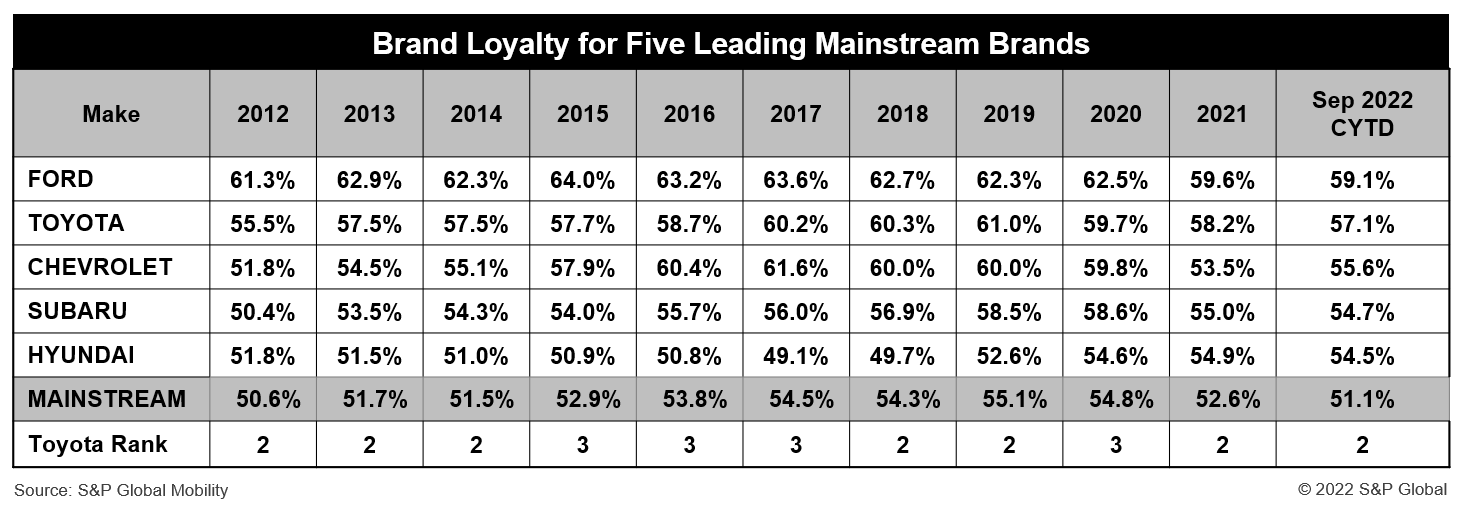
Toyota’s leadership position is reinforced by its segment-level
performance. Among the 14 segments in which the Toyota brand
competes, it currently ranks No. 1 in both retail share
and brand loyalty in five, including the Compact Car, Compact
Sport, Mid Size Car, Mid Size Pickup, and Mid Size Van Segments.
Together these five categories account for almost a quarter of the
mainstream space (22.3%). Further, in three additional segments,
including the Compact Utility, Subcompact Plus Utility, and Full
Size Car segments (with a combined mainstream share of 33.5%),
Toyota models rank No. 1 in either retail share or brand loyalty.
Put together, these eight segments in which Toyota leads in one or
both categories account for more than half (55.8%) of the
mainstream market, implying that Toyota now has a leadership or
highly competitive position in more than half of the mainstream
space. Toyota still lags in some key mainstream categories –
particularly full-size pickups and SUVs where the domestic brands
still dominate, and where Toyota has struggled to make a dent.
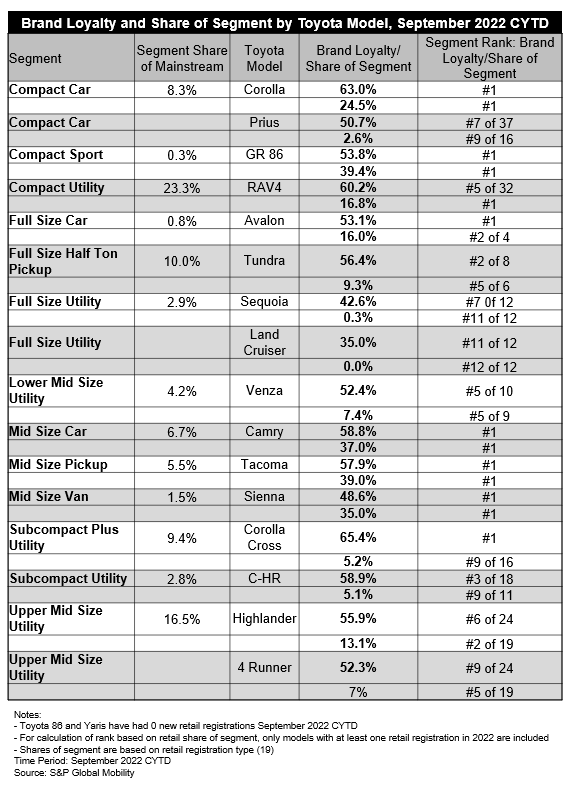
Toyota also leads the mainstream market in electrification (EV
and hybrid); its electrification share of 25.8% is almost 10
percentage points above runner-up Chrysler (see table below).
Admittedly, Toyota lags rivals Chevrolet and Ford in the
high-visibility EV space, as both those brands offer established
EVs with the Bolt and Mustang Mach-E, respectively, while Toyota’s
first EV, the BZ4X, is just now launching. But hybrids play an
important, though somewhat under-the-radar, role in alternative
fuel migration patterns: Hybrid households migrate to an EV at more
than three times the migration rate to EVs from ICE vehicles.
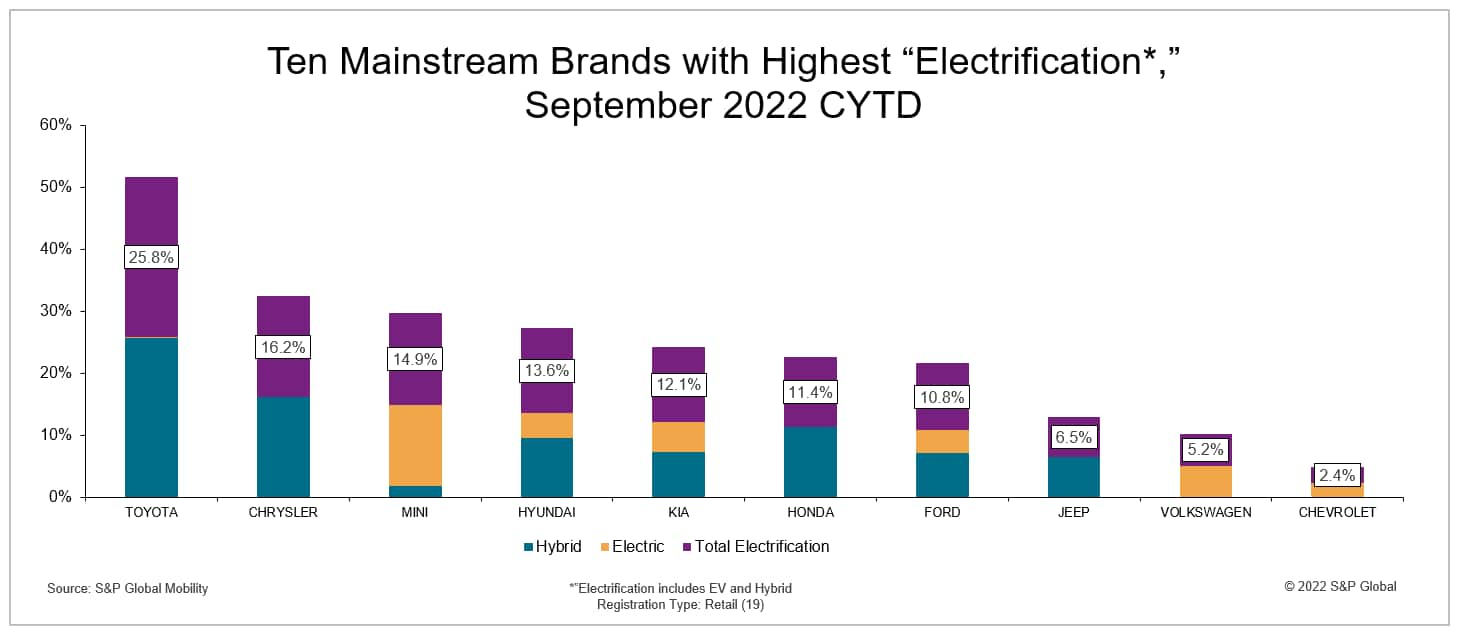
Lastly, Toyota clearly leads its mainstream competitors in
appealing to the three major ethnicities, an important achievement
given that African Americans, Asians, and Hispanics now account for
a third of all new retail registrations. As shown below, Toyota
brand loyalty among both African Americans and Hispanics surpasses
60% (the only mainstream brand for which this is the case), and
Toyota’s 48.5% brand loyalty among Asians is more than 5 percentage
points higher than that of runner-up Ford.
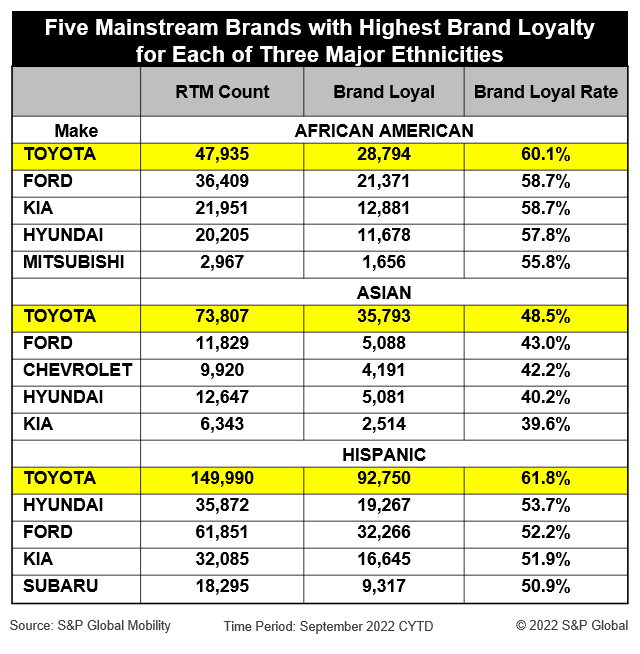
Given its record over the past several years, Toyota’s strong
positions in retail share, brand loyalty, and ethnic loyalty
support the claim that it is among the leaders, if not the
leader, in the US mass market new vehicle industry.
*Retail includes vehicles registered to individuals
——————————————————————————
Top 10 Industry Trends Report
This automotive insight is part of our monthly Top 10
Industry Trends Report. The report findings are taken from
new and used registration and loyalty data.
The November report is now available, incorporating October 2022
CFI and LAT data. To download the report, please click below.
This article was published by S&P Global Mobility and not by S&P Global Ratings, which is a separately managed division of S&P Global.
